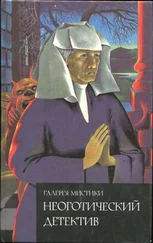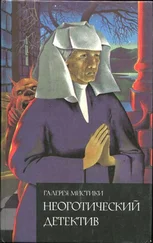Margaret Millar
Rose’s Last Summer
To the Memory of
M. M. Musselman
Rose was on the skids again. Everyone in the boarding house knew it. This was no great tribute to their powers of perception since Rose went on the skids as she did everything else, with noise, abandon and a fine sense of timing and style. Saturday night at supper she told several humorous stories, and when nobody laughed as hard as she expected, she insulted everyone and went upstairs to her room.
In the middle of the night she decided to sing some old folk songs, and when Miss Henderson, who occupied the adjoining room, objected by pounding on the wall, Rose pounded back so vigorously that she knocked a hole in the plaster. Rose was furious at Miss Henderson for causing the hole in the plaster, and reported the incident immediately to Mrs. Cushman, the landlady.
Mrs. Cushman woke up and looked sadly at the clock and then at Rose. “Rose, for Pete’s sake, it’s too early to get up. It’s only three o’clock.”
“I haven’t been to bed.”
“Then you better—”
“I can’t sleep. Who could sleep with a crackpot like that pounding on the wall all night? Knocked a hole in it as big as your head. I’ve got a good notion to move out.”
“Why don’t you?”
“By God, I will.”
She spent the next few hours packing her belongings and sipping a little wine now and then to give her energy. By breakfast time she was in an excellent mood. She unpacked all her clothes and replaced them in the closet, she hung a calendar over the hole in the wall, and publicly forgave Miss Henderson for her lousy manners, rotten disposition, and lack of musical appreciation. For some reason Miss Henderson did not respond to this act of charity, and by noon she had left, bag and baggage, leaving the room next to Rose vacant again for the third time in as many months.
Rose couldn’t understand anyone being so petty and she said as much to Mrs. Cushman.
“You’re better off without her. We’re all better off.”
“She paid her rent.”
“Money. What’s money?”
Mrs. Cushman’s plump face took on an angular severity. “Money happens to be what I live on.”
“I used to throw the stuff away. God, did I!”
“It’s too bad you didn’t throw a little my way. In fact, it’s too bad you—”
But Rose was beyond the sordid present. She lay back on the bed, careful not to bump her head on the wine bottle under her pillow, and gazed dreamily up at the ceiling and the past. “Did I ever tell you about the party I gave once, just after Anguish was released? There must have been four hundred people, and — you know what? — I didn’t know a bloody one of them.”
“Last time it was three hundred.”
“I’m no good at figures.”
“Rose.”
“If I’d been any good at figures, I’d be a millionaire right now.” She spoke with pride and only a trace of regret. “God, how I threw the stuff away. It was sheer genius.”
“Rose,” Mrs. Cushman said, “you’re hitting the bottle again.”
Rose stood up, looking very dignified and awesome, in spite of her shortness. “What a perfectly vile and offensive remark.”
“I don’t care. It’s the truth.”
“I swear, I swear by—”
“I don’t care if you was buried in Bibles right up to your neck, I wouldn’t believe you. You’re hitting the bottle again and I’m going to phone Frank.”
Rose was shaken, though she tried not to show it. “Call him. Who cares?”
“Maybe he can straighten you out like last time.”
“Straighten me out.” Rose snorted. “You talk as if I’m an old wrinkled pair of trousers and this crude and callow youth can—”
“Come off your high horse, you’re not going anywhere.”
Rose looked around the walls for reassurance. They were covered, from floor to ceiling, with photographs of herself, smiling, sultry, coy, gay; in period costumes and bathing suits; stills and action shots; Rose being kissed, strangled, rescued, fed to the lions, lighting a cigarette, toasting a lover, dancing a polka. All Rose’s, all magnificent, not in the least like an old wrinkled pair of trousers.
“You can’t phone Frank,” she said finally. “It’s Sunday, it’s his day off.”
“I can get him at home.”
“It’s debasing, degrading. I won’t talk to him. I’ll lock my door. I’ll throw things at him!”
“You do and he’ll send for the butterfly net.”
Rose was terrified by this expression. It made her feel like a butterfly, imprisoned, beating its fragile wings in futile struggle.
“He wouldn’t dare,” she said coldly.
“He would so, if he had to. You talk to him nice, now, won’t you?”
“I think this whole business is completely revolting.”
“You like Frank, you know you do.”
“He stinks,” Rose said. “Leave me alone.”
When she was left alone, she locked her door, and, removing the wine bottle from under her pillow, she poured some into a glass and savored its bouquet. It smelled a little like ketchup, but Rose didn’t know the difference, and when the wine was gone she felt better. She changed into her best silk print, combed her short hair carefully, and put on some makeup. Surveying the results of this effort in the mirror, she decided that she looked pretty good considering that she had fifty-two years of assorted living behind her. Her features were quite plain, a fact that Rose herself was willing to admit had contributed to her past success; it had been easy for women to identify themselves with her and for men to consider her within their reach.
She had always got along better with men than with women, and her vanity was still powerful enough to make her want to look her best for any man. Before Frank arrived she sprayed a little cologne around the room, hid the empty wine bottle inside her bureau, and, with the image of the butterfly net in the back of her mind, made a solemn resolution to behave with extreme grace and charm.
“You dear boy,” Rose said throatily. “You dear sweet boy to come calling on an old woman on your day off.”
Frank was quite unsurprised by this cordiality. He had known Rose for over a year, ever since the day that Mrs. Cushman had brought Rose, slightly drunk and very belligerent, to the mental hygiene clinic where Frank was one of the psychiatric social workers. Since then he had had many talks with Rose, and after each one he was left with the disturbing impression that Rose was not maladjusted to the world, but that the world was maladjusted to Rose.
Frank was twenty-seven. He had a wife, two sons, a mother-in-law, a cocker spaniel, an orange-colored cat and very little money. He was absorbed in his job, and so was Miriam, his wife. His main difficulty, aside from money, was getting to bed in time at night, since he and Miriam liked to discuss his cases and it was usually one o’clock when they retired. As a result, Frank always looked a little sleepy. This, too, served its purpose: most people felt relaxed with him and told him more than they intended because he seemed so inattentive that it was impossible to believe he was prying into their secrets. Rose was an exception. She wasn’t easily fooled, and Frank had discovered, by trial and error, that the best way to deal with Rose was to be as candid as possible. He had a great deal of respect for her and believed firmly that she was neither a mental case nor a true alcoholic, but an ageing woman who needed a job and some new interests.
“You are a sweet boy,” Rose repeated, “to think of me like this, on your day off.”
“Mrs. Cushman called me.”
Читать дальше
![Маргарет Миллар Rose's Last Summer [= The Lively Corpse] обложка книги](/books/384369/margaret-millar-rose-s-last-summer-the-lively-c-cover.webp)







![Маргарет Миллар - The Iron Gates [= Taste of Fears]](/books/433837/margaret-millar-the-iron-gates-taste-of-fears-thumb.webp)


